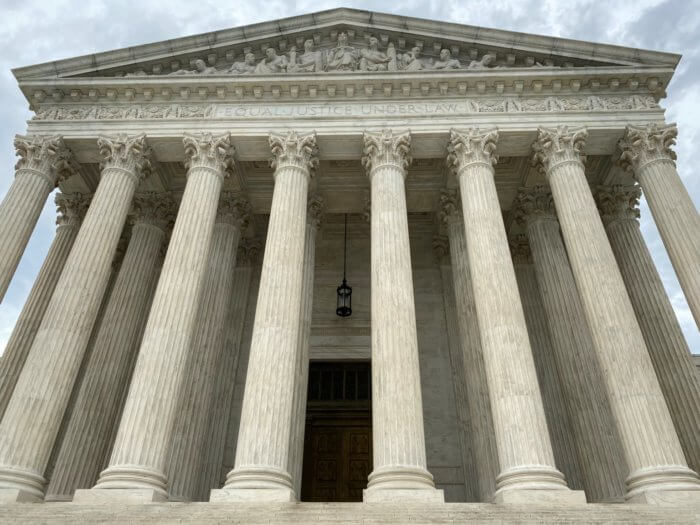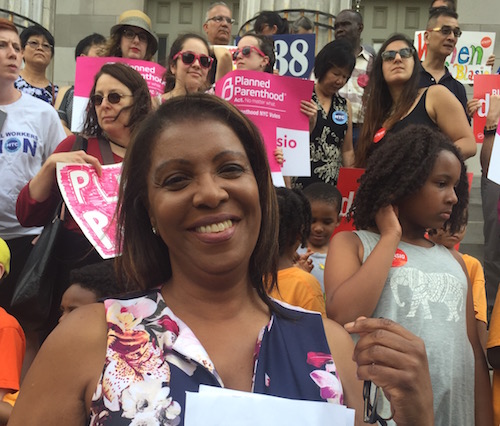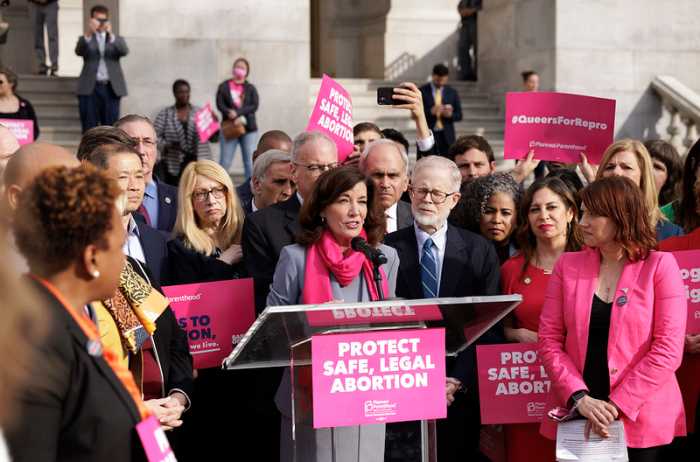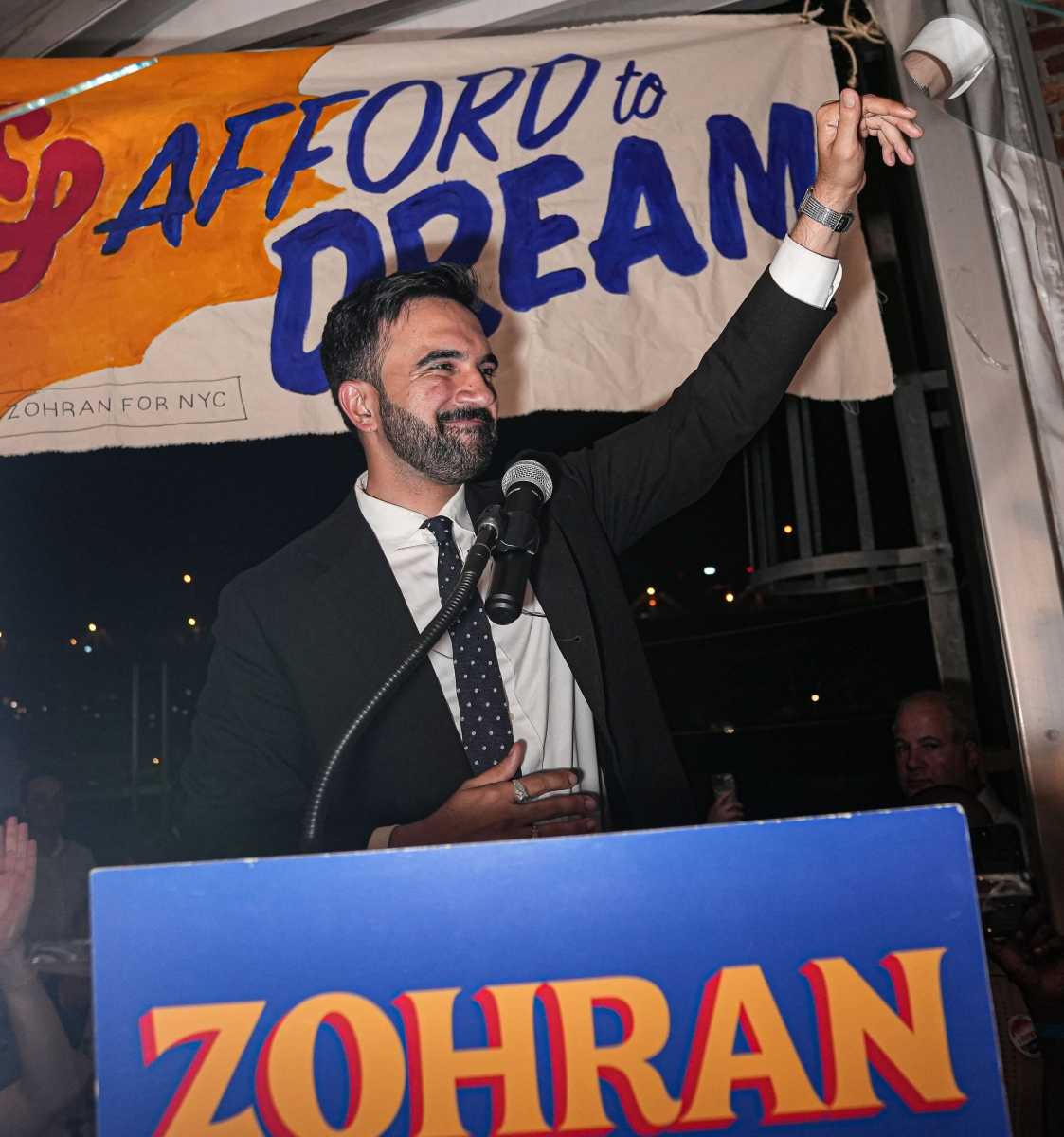Fear. Anger. Distrust. Hopelessness.
The Supreme Court’s decision to overrule the 49-year-old precedent set by Roe v. Wade and instead defer the legality of abortion to the states has drawn a mixture of adverse emotions and eroded trust in the conservative-leaning court’s ability to reflect the will of its citizens.
Just 25% of the nation has strong confidence in the Supreme Court’s decisions and status as the highest court in the land, according to a Gallup poll released this month — a drop from 36% the year prior.
Consecutive days of unpopular rulings by SCOTUS — who also ruled Thursday to strike down New York’s handgun-licensing laws that require those seeking to conceal carry to provide special need to do so — have drawn questions of the court’s legitimacy across the nation.
The court’s decision in Dobbs v. Jackson Women’s Health Organization is hardly a shock given a leak regarding the case last month indicated that the 6-3 ruling would overturn Roe v. Wade this summer, but for many, it doesn’t sting any less.
“Anticipation does nothing to prepare you for reality,” said Amanda Stecco, of Brooklyn. “When the decision was leaked, truthfully, I wasn’t surprised by it given who’s currently on the bench. Despite that though, the ruling being a reality hit so much harder because I think fighting it gave me some glimmer of hope that something might impact the bench enough to change.”
Planned Parenthood officials said Friday that, despite an expected 26 statewide abortion bans to come, 80% of the nation remains opposed to bans on reproductive rights — and those bans will impact the estimated 1 in 4 women who will have an abortion in their lifetime.
Bronx abortion care providers told the Times that abortions range in cost from $350 to $950 in the first trimester, and subsequently more expensive in the second.
The court’s death-knell decision on federal abortion protections in Dobbs could put a large burden on abortion-sanctuary states like New York and their health care systems, lawmakers and medical professional told the Bronx Times.
According to the Charlotte Lozier Institute, in 2019, New York performed 91% of its abortions on city residents, with 22% of those abortions administered in the Bronx, which is the third-highest rate behind Brooklyn and Queens. The city’s 9% abortion rate for out-of-state residents is expected to rise in the wake of impending state abortion bans, and crucially, overwhelm providers and muddy the existing abortion inequities for women and those who can get pregnant of color in low-income areas.
“I think this whole thing will be detrimental to the health care system,” said Alixandiria James, 20, who works on COVID outreach at New York Presbyterian Hospital. “The ability to leave one area and go get care somewhere else is a privilege. So not only will you have to think about how it will affect their resources, but think about the people who live in New York who can already barely afford care in here. Now they have to compete with other people coming to New York for the same care.”
When native Long Islander Andraya Spiliotis left for the sunshine of South Florida, she did so with little knowledge of the highly-politicized nature and effect that recent Supreme Court decisions would have on her life.
Spiliotis, who doesn’t want kids, said looming potential abortion bans in Florida, which is under the governorship of Rick DeSantis, who already passed a 15-week abortion ban in April, curtails the rights of all no matter their political affiliation or the political makeup of the state.
“Just because we live in red states doesn’t mean we are supporting restrictive policies. Nor do we deserve to be subjected to policies that control our bodies and lives,” Spiliotis said. “I’m grateful that I can travel back home to get reproductive help in NYC, but I feel sorry for those who won’t be able to find a safe haven or safe space. I’m a privileged white woman and I’m scared, this ruling affects everyone in some way.”
Some state lawmakers told the Times they feel like they are playing “defense” against recent SCOTUS decisions, and they worry about how federal rulings will impact their ability to govern and provide enough funding for increased out-of-state traffic for the state’s healthcare hubs.
Bedford Park Assemblymember Nathalia Fernandez said the SCOTUS decision is a “devastating day” for women across the country, noting abortion bans will disproportionately affect low-income women, women of color and the LGBT community.
Lawmakers like Bronx Assemblymember Kenny Burgos and Queens Assemblymember Jessica González-Rojas are calling on the state legislature to pass the Reproductive Freedom & Equity Fund, currently in-committee, which would boost state funding for abortion providers and nonprofit organizations that specialize in abortion access.
“When the Supreme Court puts down roadblocks that impede the progress that New Yorkers need and want, whether it be gun control or abortion, we can’t run from our values, we must double-down on them,” González-Rojas said.
The realities of the Dobbs decision prompt concerns of the future of Griswold, Lawrence, and Obergefell — the rulings that now protect contraception, same-sex relationships, and same-sex marriage.
In his concurring opinion, Justice Clarence Thomas — a George H.W. Bush appointee who has been on the bench since 1991 — said that justices should “reconsider all of the Court’s substantive due process precedents in Griswold, Lawrence, and Obergefell.”

While no other justice co-signed with Thomas on that sentiment, those dissenting, including fellow justice and Bronx native Sonia Sotomayor, questioned if the Supreme Court has earned legitimacy and the trust of the public in wake of recent decisions.
“But if there were any awards for Justices who left this Court better than they found it? And who for that reason left this country better? Sign those Justices up,” the dissent penned by Sotomayor, Stephen Breyer and Elena Kagan reads. “They knew that the legitimacy of the court was earned over time.”
-ET Rodriguez contributed to this report
Reach Robbie Sequeira at rsequeira@schnepsmedia.com or (718) 260-4599. For more coverage, follow us on Twitter, Facebook and Instagram @bronxtimes






















